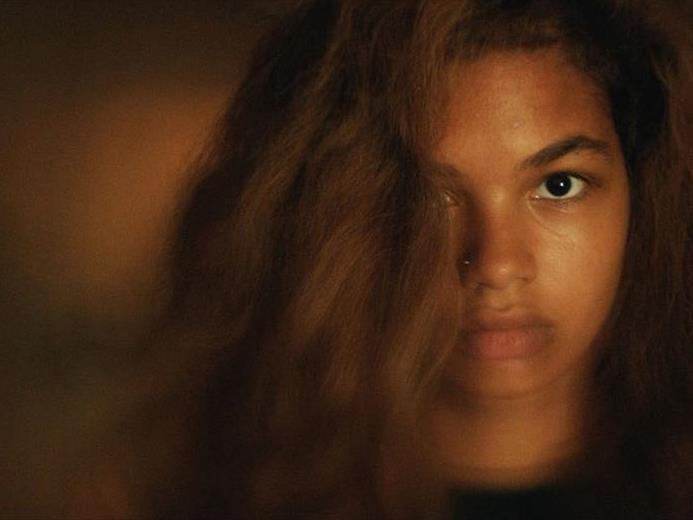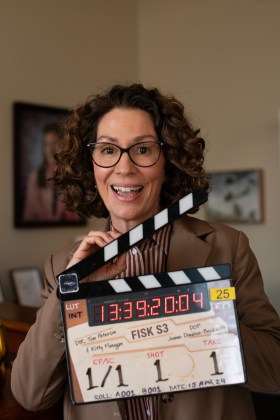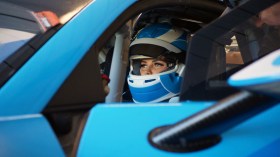Madeline’s Madeline showing at Revelation Perth International Film Festival.
‘What you are experiencing is just a metaphor,’ a nurse tells the camera in Madeline’s Madeline opening moments, uttering the phrase that sparks a myriad of queries. Is it a telling statement about the relationship between art and life, speaking literally about the film’s contents representing something else? A piece of satire designed to cast the adolescent angst, acting sessions and associated dramas that follow in an irreverent light? The inner wishes of the titular unhappy teen (debutant Helena Howard), who desperately wants her existence – her pain, her struggles to cope with her demanding mother Regina (Miranda July, The Future), her out-of-place feeling among artistic crowds, and the mental illness that is always lorded over her – to mean something?
Or, does the answer sit somewhere in-between all of the above, just as Madeline’s Madeline flits between dreams, performances and reality? The questions continue, in this feature by filmmaker Josephine Decker (Thou Wast Mild and Lovely, Butter on the Latch) that openly invites probing and pondering. Grounded as the movie is in the workshops and rehearsals of an experimental acting troupe, does the sentence describe the way an actor draws upon their own experience to find truth in a performance? With group director Evangeline (Molly Parker, 1922) paying particular attention to Madeline’s life in shaping her otherwise loosely defined production, is it an excuse used by those telling stories to co-opt the narratives of others?
That Madeline’s Madeline inspires all of the above lines of thought throughout its provocative 94 minutes speaks to a feature that isn’t content with simply relaying a tale. And why should it be when it can purposefully blur the lines between the film’s reality, its theatrical performances and Madeline’s dreams about both, and keep hazy the individual and collective meaning of the various incidents captured within its frames? Boiled down to its most straightforward synopsis, the coming-of-age effort charts its protagonist’s progression through her summer acting classes towards her 17th birthday, earning the worry of Regina and the affection of Evangeline as she dominates the group by day and flirts with neighbourhood boys by night. Just as Madeline can unleash an astounding performance on cue – suddenly seething with an outburst of emotions that weren’t there mere seconds before – however, so too can the feature spin its focus at any moment.
Decker’s embrace of an almost stream-of-consciousness narrative results in highly expressionistic filmmaking choices – of sound and vision that is subjective first and foremost, and cares little for an objective version of events. From the cloaked-in-darkness to-camera address at the beginning, to recurrent visual blurring to match its thematic concerns, to intercutting splices of Madeline’s acting, reality and imagined flights of fantasy into a fluid wave, the one certainty that resounds is how the feature mirrors its protagonist’s fractured mindset. There’s ambition, perceptiveness and exceptional artistry in every often-roving shot, as lit and lensed by cinematographer Ashley Connor (The Miseducation of Cameron Post) with the urgency and mistiness of emotions let loose. Just as much beauty and power radiates from the pace and contrast of Decker, Harrison Atkins (Easy) and Elizabeth Rao’s editing, which gives Madeline’s Madeline its inimitable and immersive rhythm.
Enter the breakthrough talent of Howard, making the type of first film appearance that could launch a thousand careers and should kickstart hers. A performer playing a performer and never holding back as either herself or Madeline, it’s a portrayal that builds slowly in command and confidence until its full force is felt, although Howard makes an imprint from the outset. A late scene, where Madeline steps into her mother’s shoes in front of her acting group – and Regina – to replay an already-seen incident that may or may not have been real, is as astonishing for those watching off-screen as it is for the characters spied gaping with wonder on camera. What Madeline’s Madeline allows everyone to experience isn’t just a metaphor, but an unpacking of the feverish collision between inner worlds and external realities as channelled through the raw spectacle of Howard’s film-defining performance.
Rating: 4 stars ★★★★
Madeline’s Madeline
Director: Josephine Decker
US, 2018, 94 mins
5-18 July, 2018
Revelation Perth International Film Festival
2-19 August, 2018
Melbourne International Film Festival
Actors:
Director:
Format:
Country:
Release:





